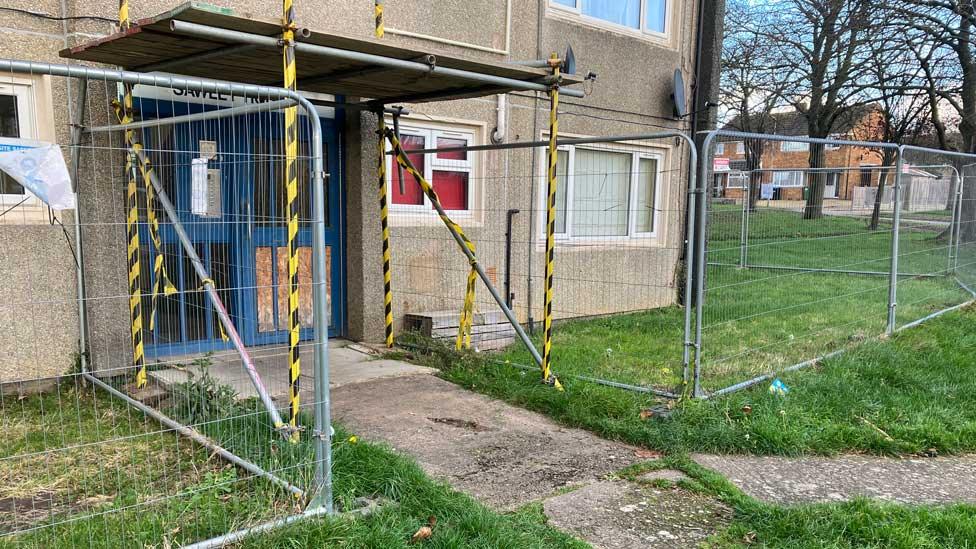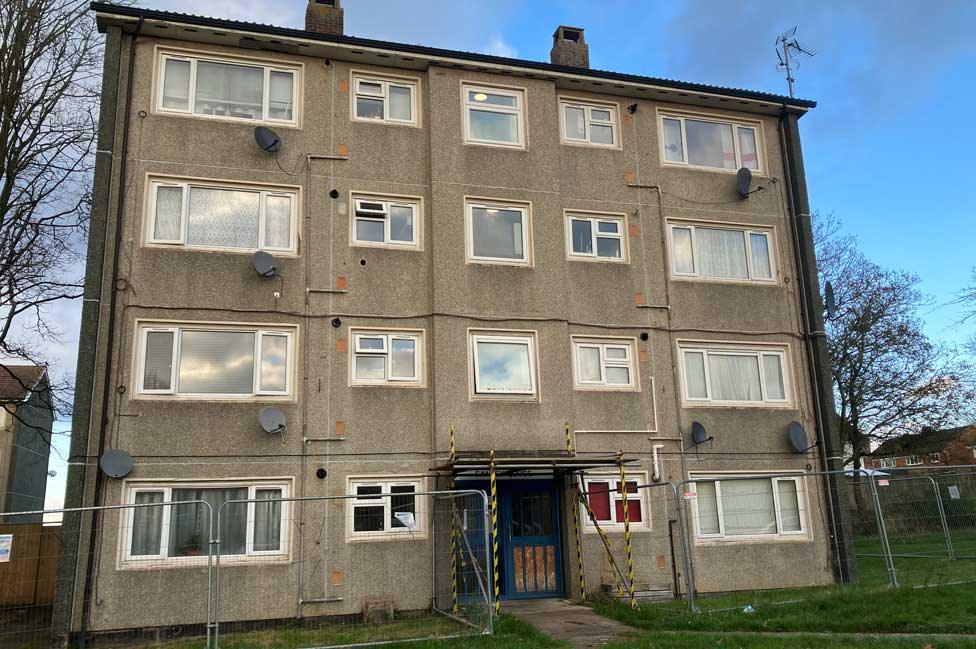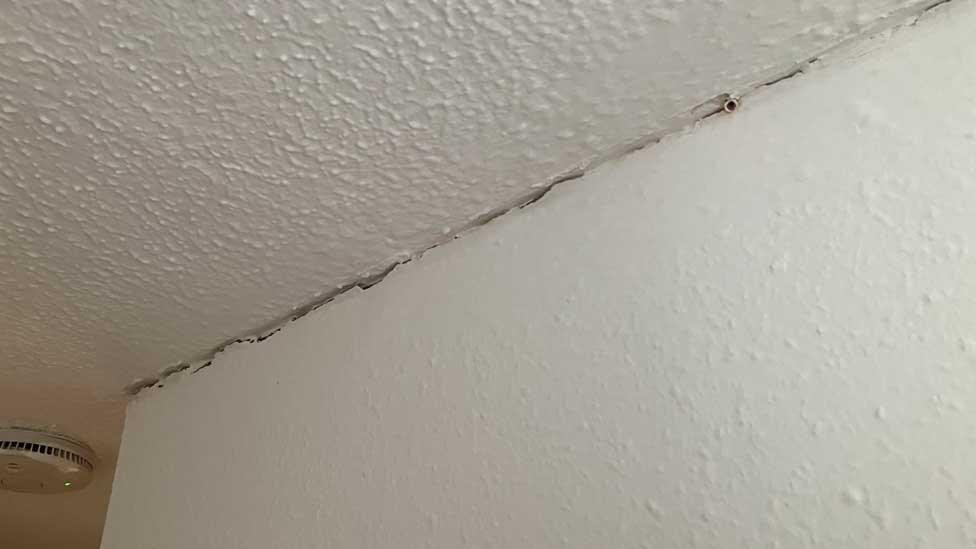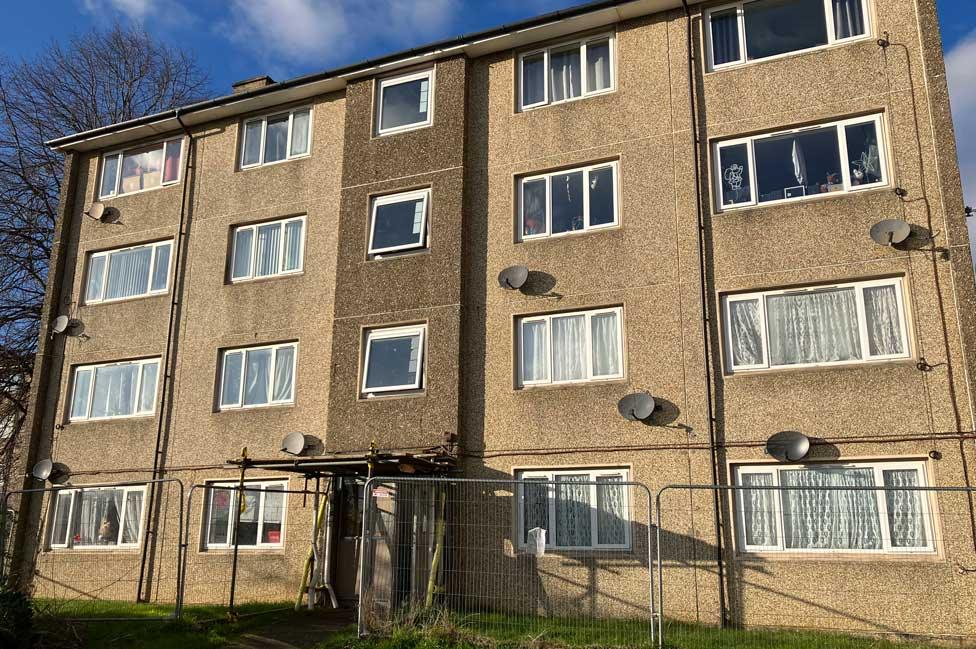Milton Keynes tenants asked to leave flats over repair costs
- Published

Fencing has been installed around some areas of the 1960s-built Reema flats in Bletchley to protect residents from loose concrete
A council has told nearly 200 tenants in 18 blocks of flats that they will have to relocate by the end of 2028.
Milton Keynes City Council claims repair costs for the 1960s-built Reema flats in Bletchley will become "unmanageable".
In letters sent to residents this week, it says the blocks "are structurally safe" now, but in time the "scale of repairs will become too costly".
Residents have mixed views on whether fears are justified.
Reema is a system of building using prefabricated, reinforced concrete panels developed by Reema Construction Ltd in the 1940s.

Michael and his partner moved to Sawley House in West Bletchley about 18 months ago
One resident, who wished only to be known as Michael, moved to the council-owned flats in West Bletchley with his partner one and a half years ago, after his previous flat was set on fire and homophobic words sprayed across the windows.
He is worried he will be moved somewhere less safe.
"I was genuinely thinking about buying this [flat] and turning it into a forever home," he said.
"It's such a nice area here, the people are friendly and we've got beautiful parks like, 50 yards away."
He worries the couple will end up "back onto another dingy little estate" and thinks his block is safe.
"We get a lot of condensation, but that isn't the biggest issue in the world," he said.
"I can deal with putting a bit of bleach over my window sills and cleaning mould once a week, it's not that big an issue that they need to move everybody."

Megan said the "cracks inside and outside are massive"
A mile down the road, a woman who gave her name only as Megan has lived in one blockfor more than 10 years.
She said would like to spend Christmas there so her children were not uprooted into an undecorated property elsewhere, but felt that where she lived was not safe.
"I would like a better property for my children, because obviously we've now been told this is unsafe," she said.
"Tell me how you're supposed to bring children home and actually feel safe in your own house because right now I don't think anybody here does.
"The cracks outside are massive, inside and outside the block, they're everywhere."

Megan said she does not feel safe
In the letter, the Labour and Liberal Democrat-run local authority said it was concerned the blocks were becoming more susceptible to the weather and that the surface of the concrete could become loose.
Fencing has been installed around some areas of the blocks to protect residents from loose concrete while scaffolding was also in place to allow ongoing monitoring and surface repairs.
The authority said it hoped these moves would happen in three phases over the next five years and after all residents have moved, the sites would be considered for new affordable homes, depending on available budgets.
The Labour cabinet member for adults, housing and healthy communities, Emily Darlington, said: "Unfortunately, treating the concrete issues is uneconomical and unaffordable for the council and is a nationwide issue for this type of historic building material.
"We're taking a far more common-sense proactive decision to help people move into new homes that suit their needs."

Follow East of England news on Facebook, external, Instagram, external and X, external. Got a story? Email eastofenglandnews@bbc.co.uk or WhatsApp 0800 169 1830